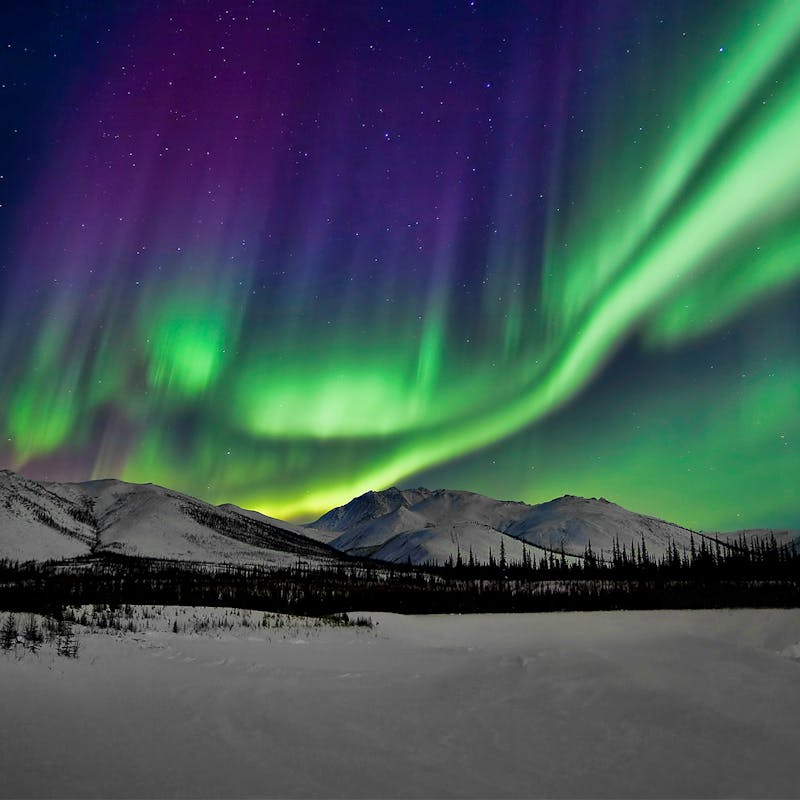Tweet“No major oil companies bid in today’s sale," said Jamie Rappaport Clark, president and CEO of Defenders of Wildlife. “This underscores that drilling in the Arctic National Wildlife Refuge is an unpopular and risky proposition.”
Today’s lease sale for the coastal plain of Arctic National Wildlife Refuge continues the Trump administration’s destructive attack on our nation’s public lands and wildlife. Today, three entities were identified as the successful bidders on 11 tracts, yielding a paltry $7 million to the federal treasury because the state of Alaska receives half of the sale price of $14 million. The failed lease sale underscores a lack of interest in developing the Arctic refuge and sets up an incoming Biden administration to reverse course to permanently protect the refuge.
“No major oil companies bid in today’s sale," said Jamie Rappaport Clark, Former president and CEO of Defenders of Wildlife. “This underscores that drilling in the Arctic National Wildlife Refuge is an unpopular and risky proposition.”
Remarkably, no major oil company submitted a bid on any tract. Most of the bids came from a state of Alaska public corporation, the Alaska Industrial Development and Export Authority (AIDEA). AIDEA is not an oil and gas developer. The total amount bid on the 11 tracts comes to 0.8% of the $1.8 billion Congress projected to receive when it authorized oil development in the Arctic Refuge in the 2017 Tax Cuts and Jobs Act.
No leases can be issued until an anti-trust review is completed by the Department of Justice, a process that normally takes two to three months. The Trump administration, however, has refused to state that it will not issue the leases before leaving office on January 20.
“Drilling for oil in the coastal plain will despoil a national wildlife treasure, violate human rights and exacerbate our climate crisis,” said President and CEO Jamie Rappaport Clark, Defenders of Wildlife. “In two weeks, Trump’s plans will be on the cutting room floor as the Biden administration has pledged to step up to protect the Arctic National Wildlife Refuge once and for all.”
The coastal plain is the single most important terrestrial denning area for U.S. polar bears, which are listed as threatened under the Endangered Species Act (ESA). The Southern Beaufort Sea population of polar bears, with approximately 900 individuals, is among the most imperiled polar bear populations on the planet and has declined dramatically – about 50% over the last three decades.
The Arctic refuge is vital to the Gwich’in people who make their home on or near the migratory route of the Porcupine caribou herd and have depended on caribou for their subsistence way of life for thousands of years.
The Gwich’in call the coastal plain “Iizhik Gwats’an Gwandaii Goodlit” or The Sacred Place Where Life Begins. Oral tradition indicates the Gwich’in have occupied this area since time immemorial, or, according to conventional belief, as long as 20,000 years.
Gwich’in Steering Committee Executive Director Bernadette Demientieff wrote in November in The Hill, “I pray we never have to answer the question: What does ‘the sacred place where life begins’ look like during and after oil and gas exploration and development? To us, this encroachment is sacrilegious — like someone driving a bulldozer through a church. The intense physical invasion of industry to this pristine and life-sustaining environment would be catastrophic to every aspect of our health, safety and wellbeing.”
These critical values and the National Wildlife Refuge System’s integrity are under assault from a congressional mandate that is driving today’s lease sale to open the refuge’s coastal plain for oil and gas development. Arctic National Wildlife Refuge is the nation’s largest and most iconic national wildlife refuge, and the Biden administration has pledged to protect it.
“We look forward to working with the Biden administration to protect the unique and pristine Arctic National Wildlife Refuge as a refuge for caribou, imperiled polar bears and migratory birds,” said Clark.“It’s also way past time that a president takes action to protect Indigenous people from dirty and destructive oil drilling, and we know that President-elect Biden will do just that.”
For over 75 years, Defenders of Wildlife has remained dedicated to protecting all native animals and plants in their natural communities. With a nationwide network of nearly 2.1 million members and supporters, Defenders of Wildlife is a leading advocate for innovative solutions to safeguard our wildlife for generations to come. To learn more, please visit https://defenders.org/newsroom or follow us on X @Defenders.
Media Contact
News

Study Led by Defenders of Wildlife Scientist Shows Noise Pollution Impacts on Migratory Birds


